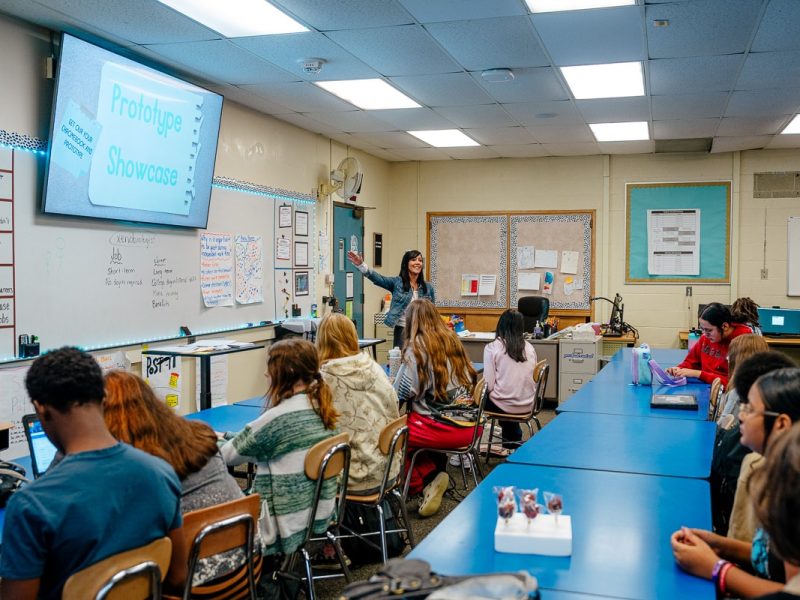Restoring Flint one neighborhood at a time with the Neighborhood Engagement Hub
Tom Wyatt of the Neighborhood Engagement Hub discusses his role as Executive Director, his challenges, and how the nonprofit adds to the beautification process of Flint neighborhoods and communities.
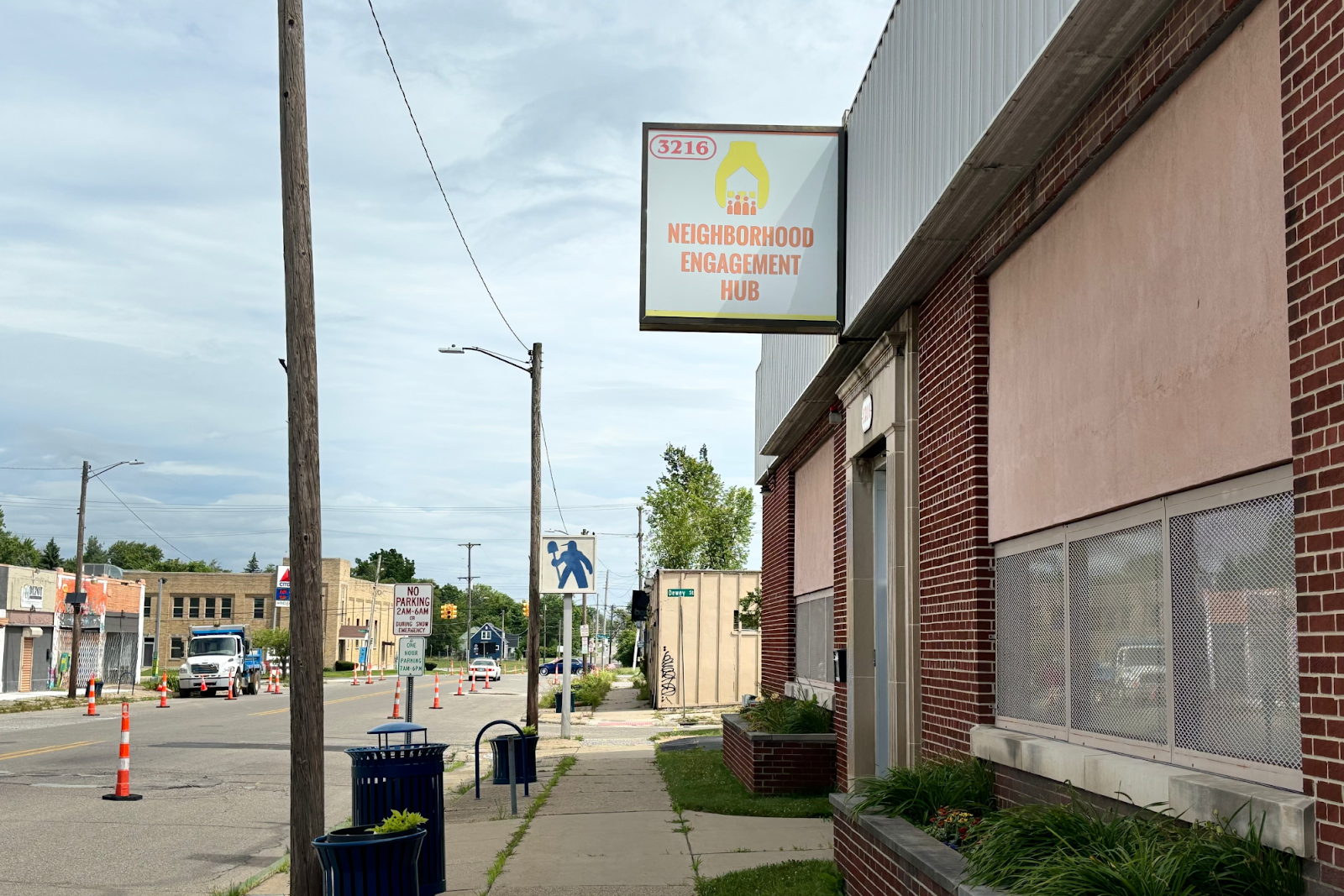
FLINT, Michigan — What good is a hammer if no one knows it’s there? Tom Wyatt knows this sentiment all too well as the Executive Director of the Neighborhood Engagement Hub (NEH). Located at 3216 Martin Luther King Ave, the NEH began in 2014 with three core values: to build local wealth, complete neighborhoods, and strengthen individuals and groups.
The nonprofit organization assists neighborhoods with grant writing, project planning and implementation, event resources, property maintenance tools, meeting and workshop space, fiduciary grant management, and more.
A fun fact about the Neighborhood Engagement Hub’s building is that it used to be a bank, and the former safe is now used for storage. The hub’s presence alone contributes greatly to blight elimination within our community.
The NEH often collaborates with entities like Clean and Green, Edible Flint, M.A.D.E. Institute, Habitat for Humanity, and Genesee County Land Bank.
Included in NEH’s services is the Community Tool Shed (CTS) which enforces direct engagements with Flint residents. Inherited from the former Salem Housing Community Development Corporation, CTS allows residents to rent tools such as lawnmowers, shovels, gas cans, and snowblowers for free.
Flintside spoke with Wyatt to discuss the origin of NEH, the challenges he faces as Executive Director, and how the nonprofit adds to the beautification process of Flint neighborhoods and communities.
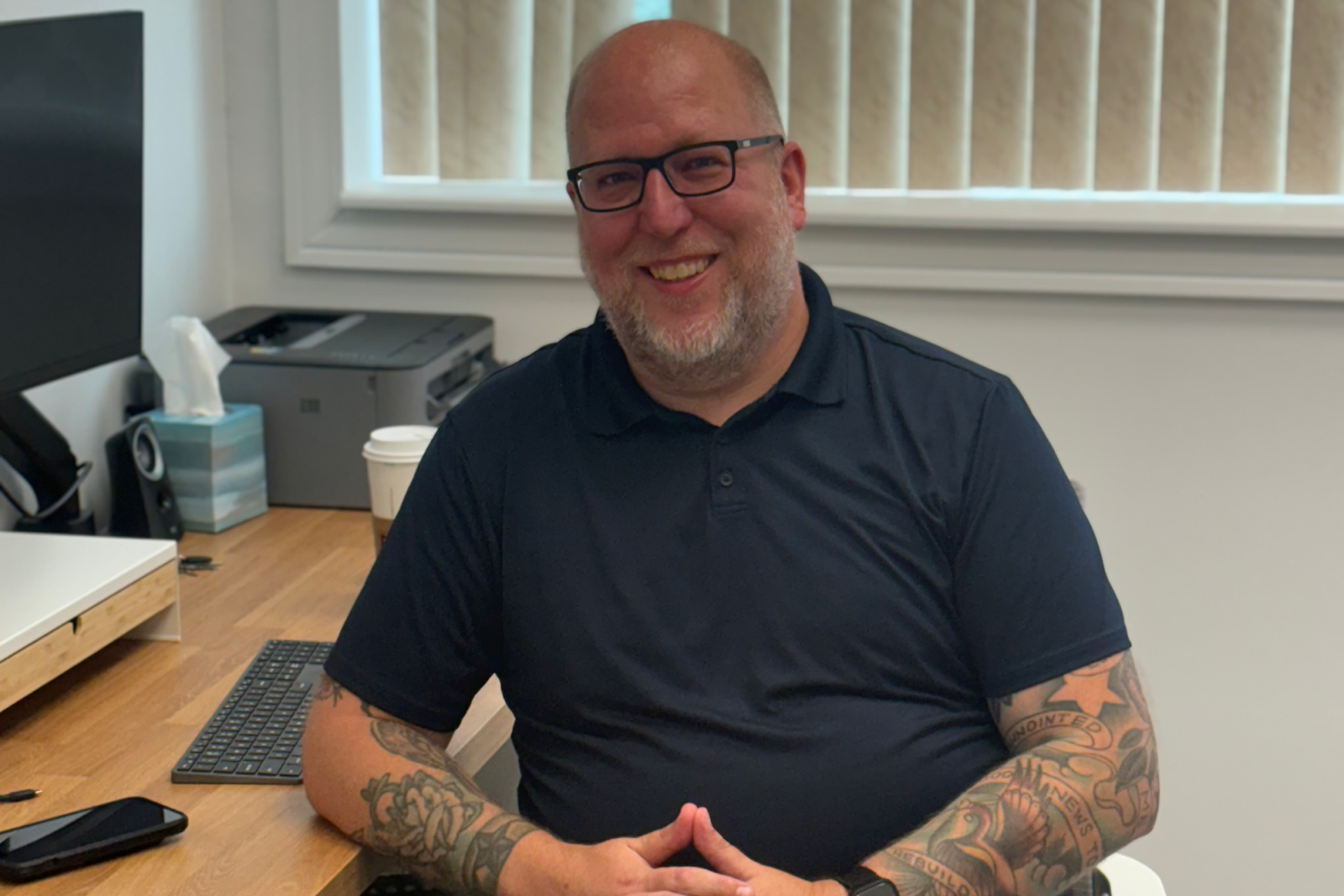
Flintside: Tell us about the inception of the Neighborhood Engagement Hub.
Tom Wyatt: “It was birthed out of the closure of the Salem Housing Community Development Corporation which had the tool shed as part of its programming. People involved with Salem really didn’t want to see that go away because there wasn’t any other presence in the neighborhood or in the city working on that level. So, a group of residents in the area got together and incorporated the Neighborhood Engagement Hub in the Fall of 2014. I came in the Fall of 2021.”
Flintside: How did NEH get involved with neighborhood associations?
T. Wyatt: “They were looking at doing next-level projects that may fall outside their knowledge or the amount of time. So, at that time, we started looking at shifting to helping co-manage projects with neighborhood groups that are looking at things like economic development, large-scale placemaking, and different improvements that require more resources.
Flintside: Can you share how NEH operates as a fiduciary to groups and nonprofits?
T. Wyatt: “We act as a fiduciary for neighborhood groups when they get up to $25,000 in neighborhood grants. I think we have the largest number of American Rescue Program Act funding for the community groups. Close to ten of those neighborhoods have received funding for building trails and parks, demolition of houses, building playgrounds, and all kinds of other stuff. So, we’re in the process of working with the city to get those funds received so that those projects can commence.”
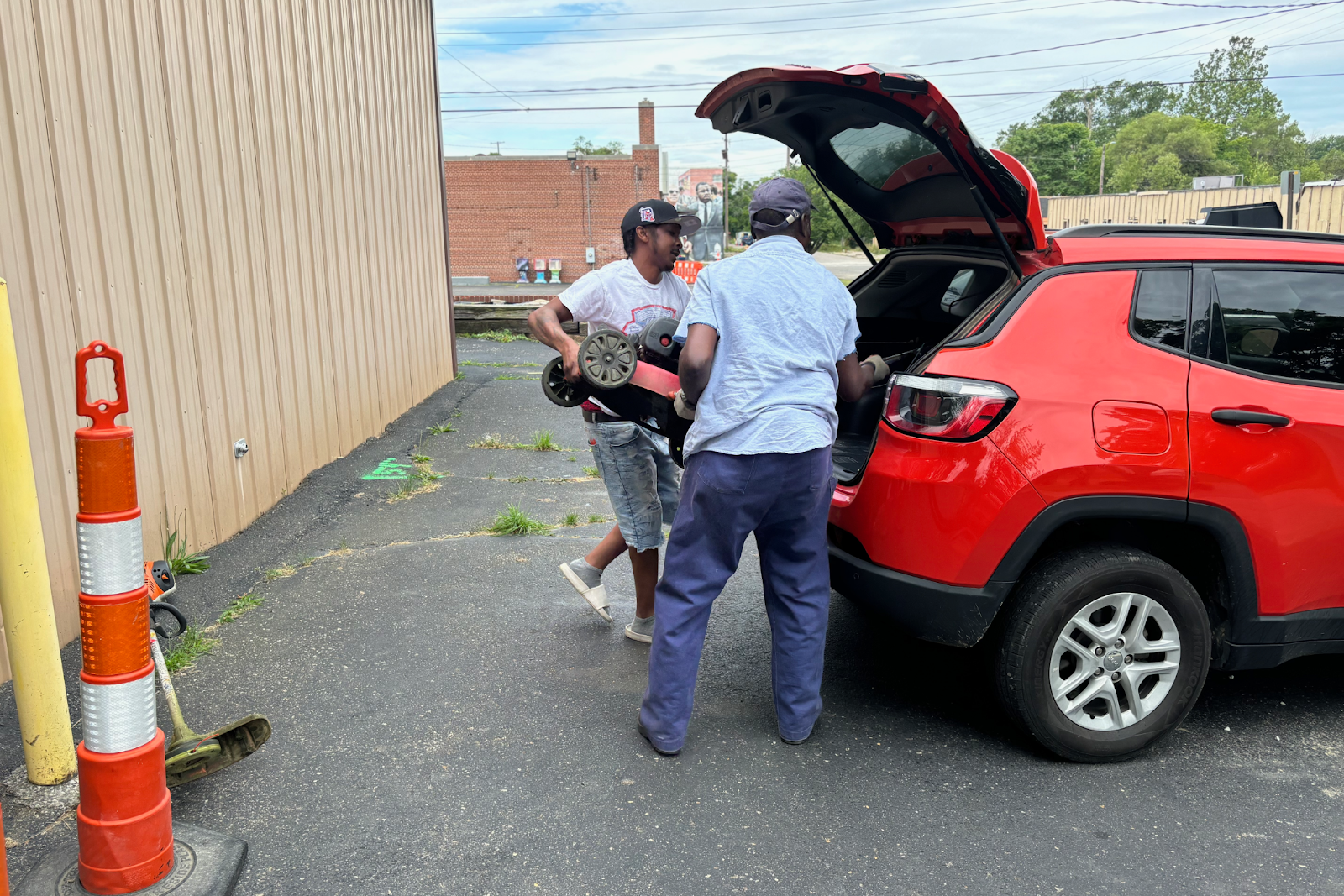
Flintside: How else does NEH benefit Flint?
T. Wyatt: “A couple of years ago, we added a component called the Mobile Event Kit. We got folding chairs, 16 tables, generators, a popcorn machine, lawn games, a sandwich board, signs, and a portable P.A. system. The idea was that a lot of people were [organizing events like] Porchfest, and there were a lot of costs involved. So, they can borrow those things so they can put more of the funds towards paying artists.”
Flintside: Does NEH have any workshops for children and young adults?
T. Wyatt: “We have a S.T.E.M. project where the kids are learning about environmental testing, and an oral history project where we’re working with neighborhoods. It was the majority Black neighborhoods that were demolished when the highways were built. Those neighborhoods and residents were scattered, so they’re getting oral histories from that time from people that are still around.”
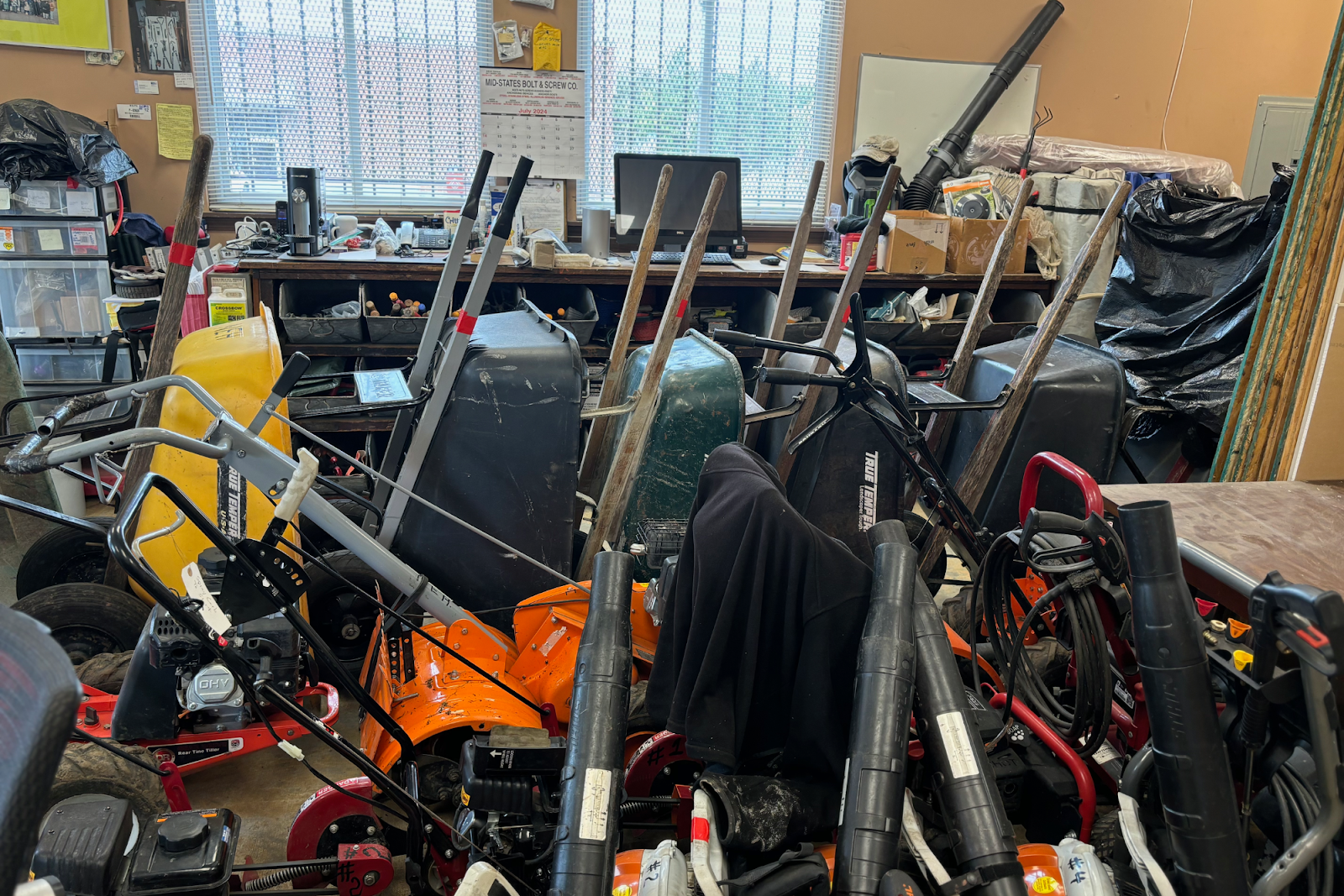
Flintside: What’s the next big goal for NEH?
T. Wyatt: “There’s a lot of buildings still that could be occupied, but the barrier is that a lot of them require a lot of funding to get them safe and occupiable. I would love to see the Neighborhood Engagement Hub engaged in helping to acquire some of those [buildings], helping to find funding to restore them, and then getting small business owners in there so that the equity and ownership is in the residence of whoever is operating the business.”
Flintside: Besides your vision for NEH, what are some challenges you face?
T. Wyatt: “It’s thinking about how to strengthen those neighborhoods and helping them come up with plans that include economic development, starting to acquire some property and restore it, and then getting it back in the hands of business owners. It’s not a bad process, but it takes a while to uncover the ‘know-how.’ I’ve lived in the city and experienced challenges, but it is very enjoyable to be part of the solution!”
For more information on the Neighborhood Engagement Hub, visit: nehflint.org
If you are interested in becoming a partner or wish to utilize their services, contact them by phone at 810-214-4829.


